International Heritage Centre blog
From bad to worse: The Salvation Army in communist Czechoslovakia
From bad to worse: The Salvation Army in communist Czechoslovakia
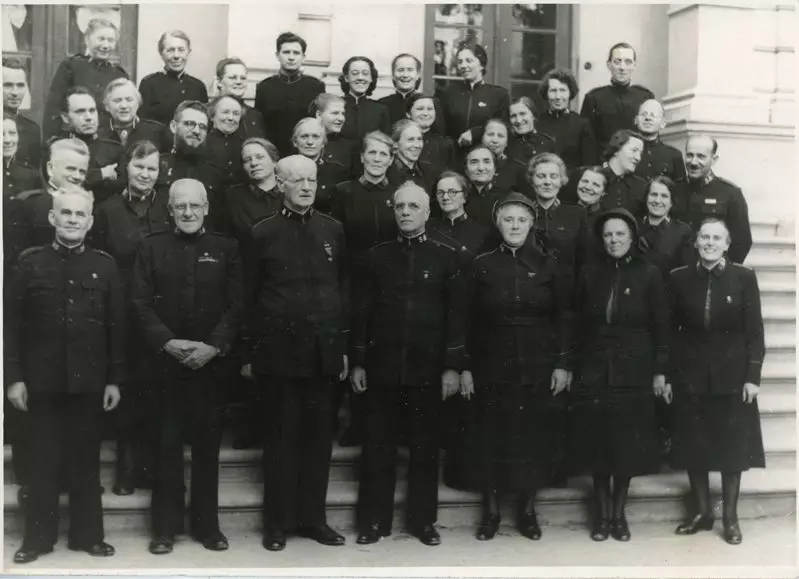
During the 1948 Czechoslovak coup d'état, the Soviet-backed Communist Party of Czechoslovakia seized control of the government and established a Communist Dictatorship that was to last for four decades. Papers from our archive detail the problems The Salvation Army experienced following the nationalisation of churches in Czechoslovakia in 1949, culminating in their eventual suppression in 1950.
‘…all religious leaders are to be paid by and approved by the State’
In 1949, the government of Czechoslovakia issued the Church/State Bill, which sought the nationalisation of churches in order to bring all institutional religion under the strict control of the State. Lieutenant-Colonel Herbert Climpson was the Officer Commanding for The Salvation Army in Czechoslovakia during this time. His correspondence, catalogued in the Europe Zonal Department papers [EUZ/8/1/1], allows an insight into the situation unfolding and the pressure the Army was subjected to. Writing to Commissioner Ogrim, the International Secretary, on 17 November 1949, Climpson recounts an ‘interview’ he had with an official from the ‘recently created State Office for Church matters’. During this meeting he is questioned as to why The Salvation Army was operating as a Society and ‘not a clearly registered religious body’ and asked as to whether the Army would like to be ‘included in the scope of the new law as a religious society’. Climpson clarifies that this new law states that ‘all religious leaders are to be paid by and approved by the State’. His letter goes on to discuss the options available for the Army but concludes that ‘Whatever decision is arrived at time alone will prove whether we would be permitted to continue on our aggressive activities on present lines…’ A further letter dated 18 November 1949 gives an alleged summary of the issues for the implication of the Church-State Bill.
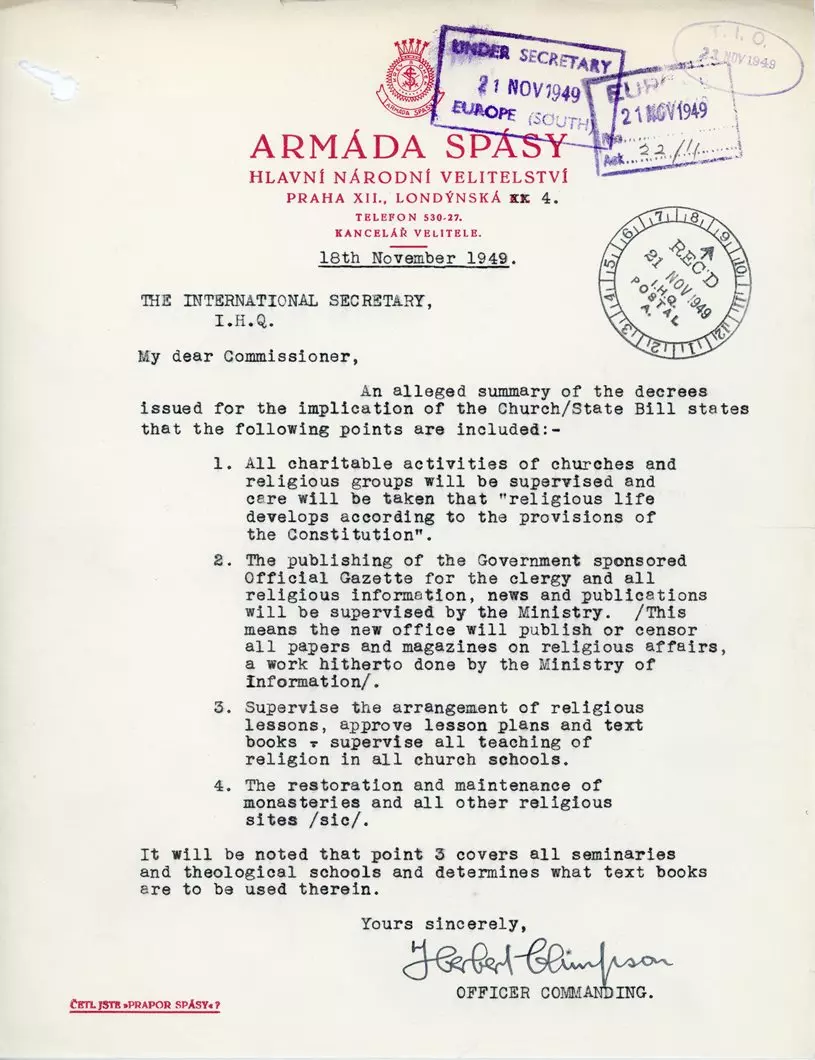
Less than a month later, a memorandum to The Chief of Staff from Commissioner Ogrim, states that the Army should following Climpson’s suggestion and unite with other churches in one organization that will allow ‘scope to continue our Evangelistic work on Salvation Army lines’. Ogrim fears that if the Army continues on in the present state as a Society it will ‘in any case presumably mean having to close down entirely’.
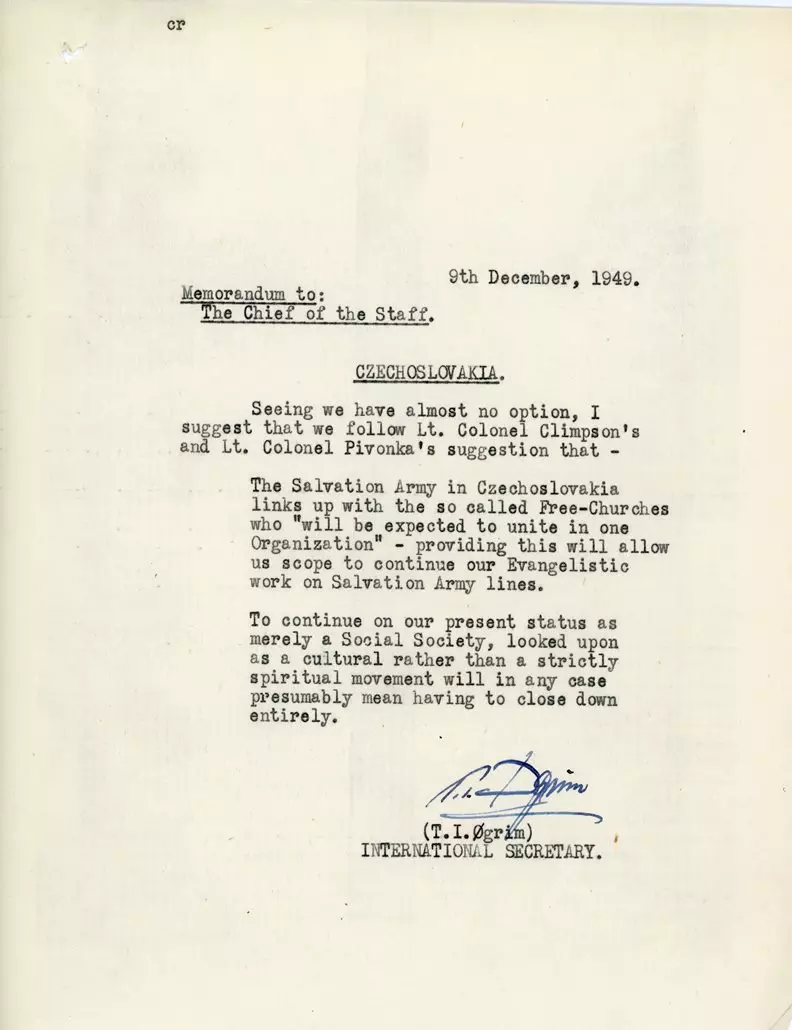
‘We felt all along that the Communist Government was waiting only its own convenience to take action against us. I am afraid our work is finished in Czechoslovakia unless and until the Communist Government is destroyed.’ General Orsborn, 29 June 1950
The situation in Czechoslovakia continued to worsen in 1950, with the Army unable to obtain from the authorities recognition as a religious society despite a pending application. By April 1950, restrictions were in place to prevent salvationists attending meetings with the closure of the Army considered imminent. In May, Climpson was ordered to leave Czechoslovakia within a fortnight. On 1 June 1950 a decree was published, dissolving the Army throughout Czechoslovakia and confiscating all property and other aspects.
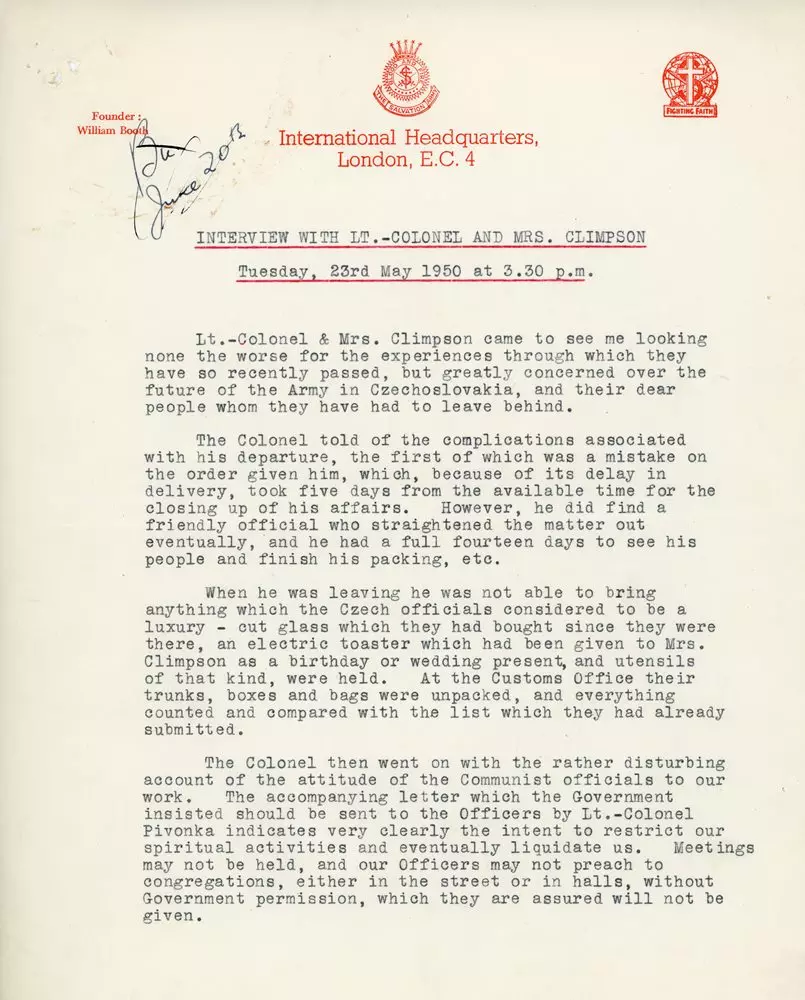
Salvationists who were imprisoned during the Army’s final months in Czechoslovakia
Several Salvationists were arrested and detained shortly before the dissolution of the Army's work. Following the Army's suppression, many were subject to trials and imprisoned. In particular, Major Josef Korbel and Major Filipina Vencova received long sentences, spending ten and nine years respectively interned.
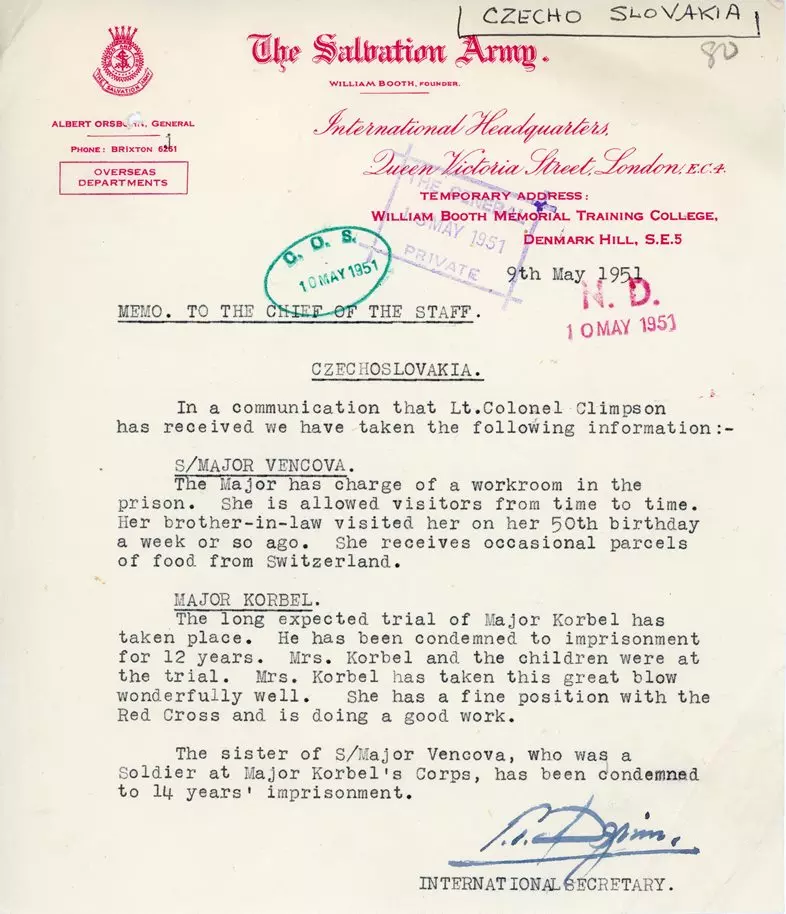
‘I am particularly sorry about Major Josef Korbel. They are quite evidently going to make that poor man suffer because for so long and for so often he stood up for Army rights, and I presume the Communists now from upon him and hold him under suspicion and they can even make it impossible for him to earn his daily bread.’
General Albert Orsborn to Lt. Commissioner Sundin, 18 August 1950 [Chief of the Staff papers - reference COS/2/1/7]
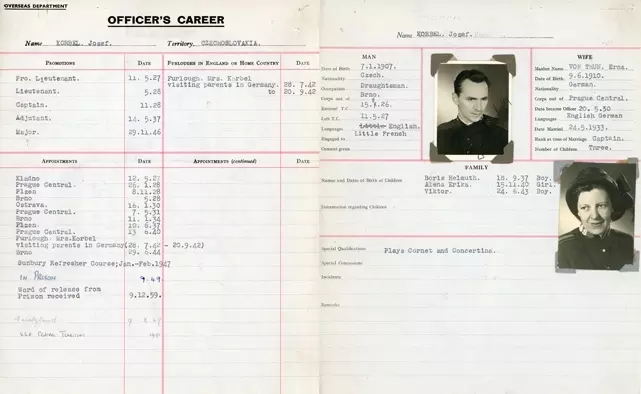
‘I learn with deep grief of the virtual arrest of Major Vencova the Czechoslovakian Y. P. Secretary.’
Memo from Chief of the Staff to Commissioner Ogrim, 7 February 1950 [COS/2/1/7]
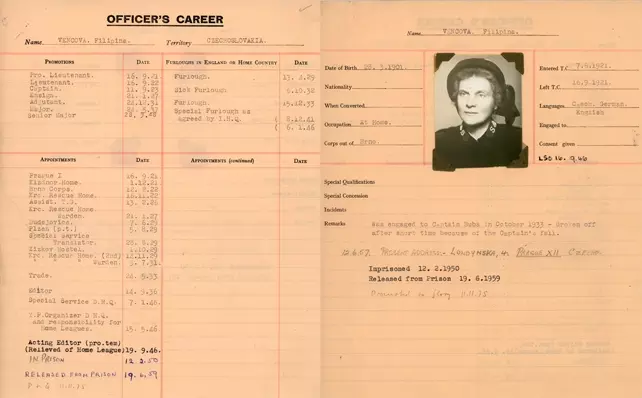
Tara
February 2016
Read other blogs from the Heritage Centre
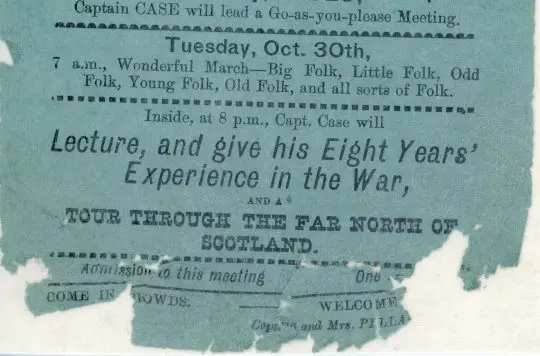
Paul O'Grady and The Salvation Army in Merseyside
When Paul came to visit the Heritage Centre, we showed him material from the archives that would help bring back memories of his early encounters with The Salvation Army in Merseyside...
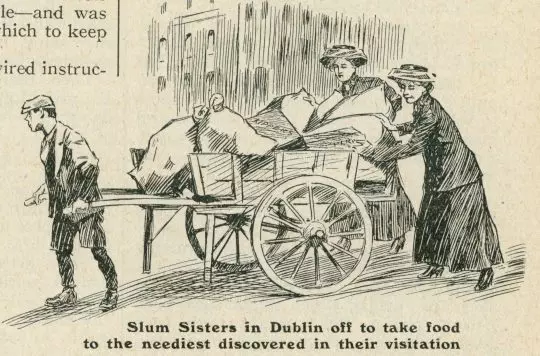
“Almost demented with hunger and fear:” Easter 1916
The events of the Easter Rising against British rule in Ireland were widely covered in the British press, and the periodicals of The Salvation Army prove to be no exception...
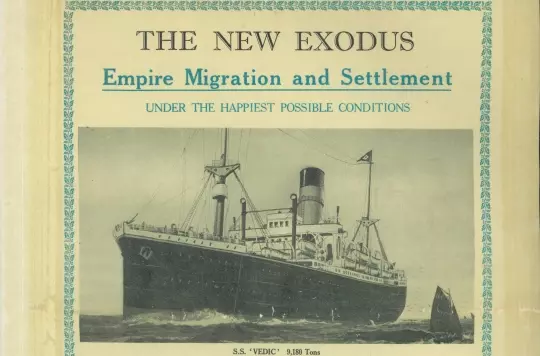
'The New Exodus': The Salvation Army and Emigration
It is a little-known fact that The Salvation Army was the United Kingdom's largest voluntary migration society in the first half of the twentieth century ...
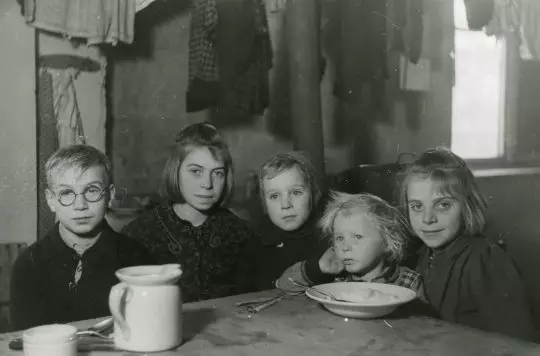
The Salvation Army in Post-War Germany
Papers in our archive shed light on the work of The Salvation Army in Germany during the Second World War ...